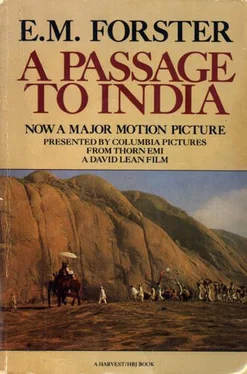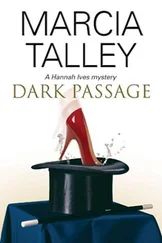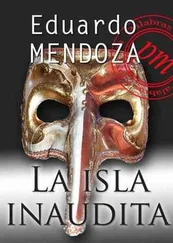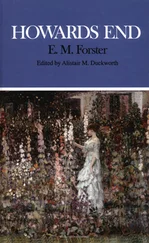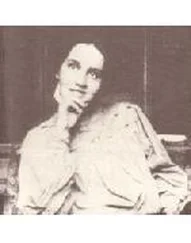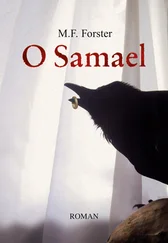The lane led quickly out of the town on to high rocks and jungle. Here he drew rein and examined the great Mau tank, which lay exposed beneath him to its remotest curve. Reflecting the evening clouds, it filled the netherworld with an equal splendour, so that earth and sky leant toward one another, about to clash in ecstasy. He spat, cynical again, more cynical than before. For in the centre of the burnished circle a small black blot was advancing—the Guest House boat. Those English had improvised something to take the place of oars, and were proceeding in their work of patrolling India. The sight endeared the Hindus by comparison, and looking back at the milk-white hump of the palace, he hoped that they would enjoy carrying their idol about, for at all events it did not pry into other people's lives. This pose of "seeing India" which had seduced him to Miss Quested at Chandrapore was only a form of ruling India; no sympathy lay behind it; he knew exactly what was going on in the boat as the party gazed at the steps down which the image would presently descend, and debated how near they might row without getting into trouble officially.
He did not give up his ride, for there would be servants at the Guest House whom he could question; a little information never comes amiss. He took the path by the sombre promontory that contained the royal tombs. Like the palace, they were of snowy stucco, and gleamed by their internal light, but their radiance grew ghostly under approaching night. The promontory was covered with lofty trees, and the fruit-bats were unhooking from the boughs and making kissing sounds as they grazed the surface of the tank; hanging upside down all the day, they had grown thirsty. The signs of the contented Indian evening multiplied; frogs on all sides, cow-dung burning eternally; a flock of belated hornbills overhead, looking like winged skeletons as they flapped across the gloaming. There was death in the air, but not sadness; a compromise had been made between destiny and desire, and even the heart of man acquiesced.
The European Guest House stood two hundred feet above the water, on the crest of a rocky and wooded spur that jutted from the jungle. By the time Aziz arrived, the water had paled to a film of mauve-grey, and the boat vanished entirely. A sentry slept in the Guest House porch, lamps burned in the cruciform of the deserted rooms. He went from one room to another, inquisitive, and malicious. Two letters lying on the piano rewarded him, and he pounced and read them promptly. He was not ashamed to do this. The sanctity of private correspondence has never been ratified by the East. Moreover, Mr. McBryde had read all his letters in the past, and spread their contents. One letter—the more interesting of the two—was from Heaslop to Fielding. It threw light on the mentality of his former friend, and it hardened him further against him. Much of it was about Ralph Moore, who appeared to be almost an imbecile. "Hand on my brother whenever suits you. I write to you because he is sure to make a bad bunderbust." Then: "I quite agree—life is too short to cherish grievances, also I'm relieved you feel able to come into line with the Oppressors of India to some extent. We need all the support we can get. I hope that next time Stella comes my way she will bring you with her, when I will make you as comfortable as a bachelor can—it's certainly time we met. My sister's marriage to you coming after my mother's death and my own difficulties did upset me, and I was unreasonable. It is about time we made it up properly, as you say—let us leave it at faults on both sides. Glad about your son and heir. When next any of you write to Adela, do give her some sort of message from me, for I should like to make my peace with her too. You are lucky to be out of British India at the present moment. Incident after incident, all due to propaganda, but we can't lay our hands on the connecting thread. The longer one lives here, the more certain one gets that everything hangs together. My personal opinion is, it's the Jews."
Thus far the red-nosed boy. Aziz was distracted for a moment by blurred sounds coming from over the water; the procession was under way. The second letter was from Miss Quested to Mrs. Fielding. It contained one or two interesting touches. The writer hoped that "Ralph will enjoy his India more than I did mine," and appeared to have given him money for this purpose—"my debt which I shall never repay in person." What debt did Miss Quested imagine she owed the country? He did not relish the phrase. Talk of Ralph's health. It was all "Stella and Ralph," even "Cyril" and "Ronny"—all so friendly and sensible, and written in a spirit he could not command. He envied the easy intercourse that is only possible in a nation whose women are free. These five people were making up their little difficulties, and closing their broken ranks against the alien. Even Heaslop was coming in. Hence the strength of England, and in a spurt of temper he hit the piano, and since the notes had swollen and stuck together in groups of threes, he produced a remarkable noise.
"Oh, oh, who is that?" said a nervous and respectful voice; he could not remember where he had heard its tones before. Something moved in the twilight of an adjoining room. He replied, "State doctor, ridden over to enquire, very little English," slipped the letters into his pocket, and to show that he had free entry to the Guest House, struck the piano again.
Ralph Moore came into the light.
What a strange-looking youth, tall, prematurely aged, the big blue eyes faded with anxiety, the hair impoverished and tousled! Not a type that is often exported imperially. The doctor in Aziz thought, "Born of too old a mother," the poet found him rather beautiful.
"I was unable to call earlier owing to pressure of work. How are the celebrated bee-stings?" he asked patronizingly.
"I—I was resting, they thought I had better; they throb rather."
His timidity and evident "newness" had complicated effects on the malcontent. Speaking threateningly, he said, "Come here, please, allow me to look." They were practically alone, and he could treat the patient as Callendar had treated Nureddin.
"You said this morning—"
"The best of doctors make mistakes. Come here, please, for the diagnosis under the lamp. I am pressed for time."
"Aough—"
"What is the matter, pray?"
"Your hands are unkind."
He started and glanced down at them. The extiaordinary youth was right, and he put them behind his back before replying with outward anger: "What the devil have my hands to do with you? This is a most strange remark. I am a qualified doctor, who will not hurt you."
"I don't mind pain, there is no pain."
"No pain?"
"Not really."
"Excellent news," sneered Aziz.
"But there is cruelty."
"I have brought you some salve, but how to put it on in your present nervous state becomes a problem," he continued, after a pause.
"Please leave it with me."
"Certainly not. It returns to my dispensary at once." He stretched forward, and the other retreated to the farther side of a table. "Now, do you want me to treat your stings, or do you prefer an English doctor? There is one at Asirgarh. Asirgarh is forty miles away, and the Ringnod dam broken. Now you see how you are placed. I think I had better see Mr. Fielding about you; this is really great nonsense, your present behaviour."
"They are out in a boat," he replied, glancing about him for support.
Aziz feigned intense surprise. "They have not gone in the direction of Mau, I hope. On a night like, this the people become most fanatical." And, as if to confirm him, there was a sob, as though the lips of a giant had parted; the procession was approaching the Jail.
"You should not treat us like this," he challenged, and this time Aziz was checked, for the voice, though frightened, was not weak.
Читать дальше
